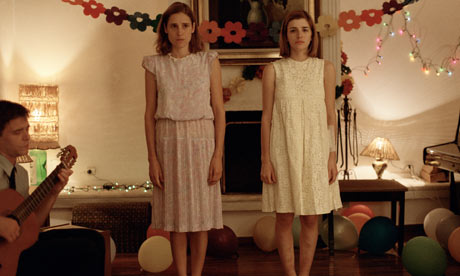
Kith and kink ... Dogtooth
A black-comic poem of dysfunction, a veritable operetta of self-harm, this brilliant and bizarre film from the Greek director Giorgos Lanthimos is superbly acted and icily controlled – it grips from the very first scenes. Development does not get more arrested than this. Dogtooth could be read as a superlative example of absurdist cinema, or possibly something entirely the reverse – a clinically, unsparingly intimate piece of psychological realism. Watching this, and alternately gaping at the unselfconsciously shocking scenes of violence, thwarted sexuality and unexpressed sibling grief, I was reminded of Alan Bennett's maxim that all families have a secret: they are not like other families. But I can't imagine any family being quite as unlike others as this.
http://www.festival-cannes.com/assets/Image/Direct/028999.pdf
Somewhere in the Greek countryside, a wealthy middle-aged businessman and paterfamilias (played by Christos Stergioglou) has a handsome house with beautiful grounds and a gorgeous swimming pool – the upkeep of which this family appears to manage without external help. He has a quietly submissive wife (Michelle Valley), and three handsome children in their 20s: two daughters and one son, played by Aggeliki Papoulia, Mary Tsoni and Hristos Passalis. So far, so wholesome.
But something is very wrong with this picture. The children, as becomes chillingly clear, are infantilised: they have never been permitted to leave the family compound, and, like Baron von Trapp's children responding to a naval whistle, they have been trained in obedience like dogs, woofing and leaping about on all fours to order, but also capable of walking and talking like convincing human beings, although their conversation has a stilted quality, as if in a light, hypnosis-induced trance.
Their education has been a parody of home-schooling in which mum and dad have deliberately taught them the wrong meaning of words, perhaps to shield them from outside reality, to render this reality meaningless and unreadable, and therefore to blur and jumble its very existence. This grotesque anti-teaching is a symptom of their parents' own shock and trauma, an alienation they have fanatically passed on to their offspring. The father pays his factory's security guard, Christina (Anna Kalaitzidou), to come to the house (blindfolded) and service the son sexually, an arrangement he furiously terminates on learning that Christina is a bad influence on his daughters, before deciding that the arrangement can be carried on, as it were, in-house.
The key to the mystery may reside in a missing family member and a doberman that the master of the house has evidently, paradoxically, decided to have trained by a professional outside the family group.
It is a movie of southern Europe, which bears the influence of something more northern European. With its pristine clarity, refrigerated light and deadpan stabs of violence, it looks unmistakably like something by Michael Haneke or his Austrian contemporaries, Ulrich Seidl and Jessica Hausner. It also brought to my Anglo-Saxon mind William Golding and the early fiction of Ian McEwan. The scalp-prickling strangeness of a family that is outwardly normal yet privately horrific inevitably invites memories of Josef Fritzl and his cellar, and also for me, at one remove, Haneke's The Seventh Continent. Perhaps the two sinister boys in Funny Games were brought up in a household like the one in Dogtooth.
Yet for all this, Lanthimos's movie has a sense of pitch-black humour and even playfulness. He has a brilliant opening sequence in which the children are solemnly taught incorrect meanings to the words "sea", "motorway" and "excursion", complete with incorrect contexts. A "zombie" is a yellow flower, leading to the son's gentle, childlike delight in finding a couple in the garden. These people try to live their stunted lives according to Borges's Chinese encyclopaedia of impossible definitions or Monty Python's Hackenthorpe Book of Lies. Yet even here reality will intrude. Pressed for the meaning of "pussy", which the children have found written on one of their parents' private stash of videocassettes, the mother blurts out that it means "a big light", and incautiously rushes to demonstrate its use: "The pussy is switched off and the house is plunged into darkness." A psychoanalyst would have a field day with that, but sadly there are no psychoanalysts available.
The humour is not entirely cruel, or alienated. At one stage, the son tells the family over one of their meals that they have run out of black tint for his eyebrows, and that he can't use blue tint – because that would be unnatural. The line delivers something unavailable in Haneke: a big laugh.
The film is superbly shot, with some deadpan, elegant compositions, and intentionally skewiff framings of the "headless" variety that Lucrecia Martel used in her film The Headless Woman, imbibing both the sociopathy of the characters and, at one remove, the reality-TV surveillance aesthetic of the Big Brother house. Lanthimos holds your attention with wonderfully inscrutable images, such as trees dappled with Hockneyesque sunlight from the swimming pool. It is a film about the essential strangeness of something society insists is the benchmark of normality: the family, a walled city state with its own autocratic rule and untellable secrets.
http://www.festival-cannes.com/assets/Image/Direct/028999.pdf
- Dogtooth (Kynodontas)
- Production year: 2009
- Country: Rest of the world
- Cert (UK): 18
- Runtime: 96 mins
- Directors: Yorgos Lanthimos
- Cast: Aggeliki Papoulia, Anna Kalaitzidou, Christos Passalis, Christos Stergioglou, Mary Tsoni, Michele Valley
But something is very wrong with this picture. The children, as becomes chillingly clear, are infantilised: they have never been permitted to leave the family compound, and, like Baron von Trapp's children responding to a naval whistle, they have been trained in obedience like dogs, woofing and leaping about on all fours to order, but also capable of walking and talking like convincing human beings, although their conversation has a stilted quality, as if in a light, hypnosis-induced trance.
Their education has been a parody of home-schooling in which mum and dad have deliberately taught them the wrong meaning of words, perhaps to shield them from outside reality, to render this reality meaningless and unreadable, and therefore to blur and jumble its very existence. This grotesque anti-teaching is a symptom of their parents' own shock and trauma, an alienation they have fanatically passed on to their offspring. The father pays his factory's security guard, Christina (Anna Kalaitzidou), to come to the house (blindfolded) and service the son sexually, an arrangement he furiously terminates on learning that Christina is a bad influence on his daughters, before deciding that the arrangement can be carried on, as it were, in-house.
The key to the mystery may reside in a missing family member and a doberman that the master of the house has evidently, paradoxically, decided to have trained by a professional outside the family group.
It is a movie of southern Europe, which bears the influence of something more northern European. With its pristine clarity, refrigerated light and deadpan stabs of violence, it looks unmistakably like something by Michael Haneke or his Austrian contemporaries, Ulrich Seidl and Jessica Hausner. It also brought to my Anglo-Saxon mind William Golding and the early fiction of Ian McEwan. The scalp-prickling strangeness of a family that is outwardly normal yet privately horrific inevitably invites memories of Josef Fritzl and his cellar, and also for me, at one remove, Haneke's The Seventh Continent. Perhaps the two sinister boys in Funny Games were brought up in a household like the one in Dogtooth.
Yet for all this, Lanthimos's movie has a sense of pitch-black humour and even playfulness. He has a brilliant opening sequence in which the children are solemnly taught incorrect meanings to the words "sea", "motorway" and "excursion", complete with incorrect contexts. A "zombie" is a yellow flower, leading to the son's gentle, childlike delight in finding a couple in the garden. These people try to live their stunted lives according to Borges's Chinese encyclopaedia of impossible definitions or Monty Python's Hackenthorpe Book of Lies. Yet even here reality will intrude. Pressed for the meaning of "pussy", which the children have found written on one of their parents' private stash of videocassettes, the mother blurts out that it means "a big light", and incautiously rushes to demonstrate its use: "The pussy is switched off and the house is plunged into darkness." A psychoanalyst would have a field day with that, but sadly there are no psychoanalysts available.
The humour is not entirely cruel, or alienated. At one stage, the son tells the family over one of their meals that they have run out of black tint for his eyebrows, and that he can't use blue tint – because that would be unnatural. The line delivers something unavailable in Haneke: a big laugh.
The film is superbly shot, with some deadpan, elegant compositions, and intentionally skewiff framings of the "headless" variety that Lucrecia Martel used in her film The Headless Woman, imbibing both the sociopathy of the characters and, at one remove, the reality-TV surveillance aesthetic of the Big Brother house. Lanthimos holds your attention with wonderfully inscrutable images, such as trees dappled with Hockneyesque sunlight from the swimming pool. It is a film about the essential strangeness of something society insists is the benchmark of normality: the family, a walled city state with its own autocratic rule and untellable secrets.


Sign up for the Film Today email
The top headlines each weekday delivered straight to your inbox in time for your evening commute.
Sign up for the Film Today email -
The Dollar And Euro Are Doomed. These 3 Currencies Will Take Over.
WallStreetDaily.com/Free-Report -
Doctor: 5 Warning Signs You're About to Get Alzheimer's Disease
www.newsmax.com -
One Search. All Jobs. Indeed™
ca.indeed.com/Clerk

- Biographie
- Filmographie
- Top films/séries
- Photos
- Récompenses
- News
- Vidéos
- VOD, DVD
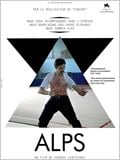 Alps 2011
Alps 2011 Canine 2009
Canine 2009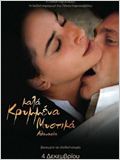 Athanasia, des secrets bien gardés 2008
Athanasia, des secrets bien gardés 2008

Kino International
From left, Hristos Passalis, Aggeliki Papoulia and Mary Tsoni as grown children confined to their home.
It takes a few scenes to grasp the arrangement, because, perhaps in a reflection of the way families seem self-evident to themselves, no real explanation is given. (The overgrown kids’ clueless childlike chatter is an early hint that something bizarre is going on.) Mr. Lanthimos’s deadpan strategy invites speculation and avoids didacticism.
“Hopefully you make it open enough, and then all these people come in and discuss about totalitarian states, and about dictatorship in Greece,” Mr. Lanthimos, who is 37, said in an interview in March soon before the film’s screening in the New Directors/New Films series organized by the Film Society of Lincoln Center and the Museum of Modern Art. “In Toronto there were some Americans that asked me about home schooling. In the U.K. they were saying, ‘Is this about the fact that we can’t let our kids outside anymore because it’s very dangerous?’ ”
Other possibilities come to mind: a reductio ad absurdum take on Eden, a satire of Greek families, a B. F. Skinner-esque parable on desire and repression. But one thing about “Dogtooth” is unambiguous: It is a rare thing, an acclaimed new film from a country not known for its contemporary cinema. At Cannes last year it won the top prize in the Certain Regard section but only gradually attracted more attention at other international festivals.
“It was a big deal in Greece, getting the award in Cannes after so many years, after Angelopoulos, which was years ago,” Mr. Lanthimos said, referring to Greece’s elder cinematic statesmen, Theo Angelopoulos, who won the Cannes Palme d’Or for “Eternity and a Day” in 1998. “So it was a national pride kind of thing.”
Even Mr. Angelopoulos, who is 75, gave his stamp of approval to “Dogtooth” in an e-mail message: “I liked it very much. It is an unusual story, but also strangely mature. Lanthimos is the most important voice of a new filmmaker in Greece today.”
Acclaim at festivals for Mr. Lanthimos’s 2005 film, “Kinetta,” helped secure the original budget for “Dogtooth,” but even so, the financing hasn’t been easy.
“Most of the people had to work for free or for very little money, and we had to ask for a lot of favors, props and furniture,” Mr. Lanthimos said. “It started with a budget of 250,000 euros,” about $308,000, “but it cost twice as much, if you think of all the people who didn’t get paid and all the things we got for free.”
It may come as no big surprise that the lockdown parenting in “Dogtooth” hits some snags. The father’s unorthodox sexual education for his son, for example, involves bringing home a female guard from the factory. (She’s blindfolded for the car ride.) She eventually introduces what could be called cultural contaminants into the household in the form of videotapes.
In the aftermath “Dogtooth” displays tried-and-true characteristics of the modern art-house shock film: start with a dystopian conceit, then mash together artificially heightened naïveté, sudden violence and perverse reticence. And as the father tries to tighten the familial screws (beyond keeping the telephone hidden in a cabinet), the film further tweaks taboos on incest and brutality toward the defenseless.
“To me it’s like children,” Mr. Lanthimos said. “I think children are really violent with each other often. And if you take that situation to these grown-up people who have remained like children, it escalates. There’s all this tension between them that somehow has to be released.”
What emerges is an ultimately volatile study in the human hunger for experience, and it forms an intriguing pair with Mr. Lanthimos’s previous puzzle of a film. In “Kinetta,” a small group stages scripted re-enactments of accidents and assaults that have occurred around a resort hotel. He seems to be creating a body of work about freakish homemade microcultures — in a country whose rich literary patrimony lies at the basis of Western civilization.
It’s a curious project but true to the heart of a filmmaker fascinated (and entertained) by the possibilities of radical experiments in behavior. But Mr. Lanthimos, who next year will direct Chekhov for the national Greek theater and who will revisit the theme of re-enactment in a new film he is working on, called “Alps,” sees older motives in the parents’ behavior in “Dogtooth.”
“For me, to them, they’re doing this thing out of love,” he said. “And they come up with all these ridiculous ideas to protect them and to lie to them so that they can protect them. They think it’s the best thing that they can do for their children. I think that they’re so stupid, that they actually believe that.”
The surprising Greek film winning fans abroad
December 3, 2009 -- Updated 1725 GMT (0125 HKT)
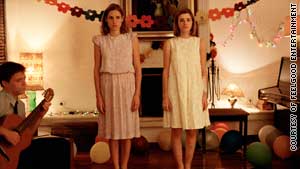
The siblings in "Dogtooth" are confined to an isolated country estate, without any infuence from the outside world.
STORY HIGHLIGHTS
- Yorgos Lanthimos' "Dogtooth" won the "Un Certain Regard" prize in Cannes earlier this year
- His second film deals with the waning of the traditional family in a novel way
- Funding is the biggest challenge for Greek filmakers, according to the 36-year-old director
- He is one of few Greek directors making waves internationally
With a minimal presence abroad, Greek film has often relied on the reputable auteur for international recognition.
Recently a new light has been shining for Greek cinema internationally.
Earlier this year, over a decade after "Eternity and a Day" handed Angelopoulos a "Palme d'Or," Yorgos Lanthinos has managed to get modern Greek cinematography back in the line-up at the prestigious world of Cannes Film Festival.
His sophomore film, "Dogtooth," won the "Un Certain Regard" prize in the 62nd edition of the festival and gave the 36-year-old director one of the most coveted prizes awarded to young filmmakers.
Here, Lanthimos talks to The Screening Room only a few days after "Dogtooth's" latest win -- first prize at the Stockholm Film Festival.
The Screening Room: "Dogtooth" is about three siblings who grow up in complete seclusion, isolated by their parents from society. How did you come up with the story?
Yorgos Lanthimos: I co-wrote the script for "Dogtooth" with Efthimis Filippou. I wanted to write a story about the waning of the traditional family. Then, I thought of a father who wants to protect his family unit at all costs and the system he invents in order to do this.
The film played with the expectation viewers had when going to see a Greek film.
--Yorgos Lanthimos
--Yorgos Lanthimos
 Video: Thessaloniki turns 50
Video: Thessaloniki turns 50
TSR: Can you identify a new wave of films coming out of Greece and do these films have a singular voice?
YL:No, the films that do well in Greece are very different from each other. I think one of the advantage of not having a proper film school is that Greece now has several individual films to showcase. There is not a single Greek new wave with common characteristics. For example, to mention some recent films, Panos Koutras' "Strella," "Black Field" by Vardis Marinakis and "Dogtooth" are all very different from one another.
TSR: How did you finance "Dogtooth," and what particular production challenges did you face?
YL: Funding is the biggest challenge for Greek filmmakers. "Dogtooth" received about $300,000 (€ 200,000) from the Greek Film Center, the state body supporting Greek film production.
BOO Productions and I put in a large amount of money and a lot of our friends volunteered their time and talent to this production.
Due to a lack of funds, many Greek films end up being made because people volunteer their time to filmmakers, but this is not necessarily a healthy practice for the film industry.
TSR: What is the kind of reception "Dogtooth" has gotten so far?
YL: "El Divo" director and the 2009 Cannes Jury President Paulo Sorrentino said that "Dogtooth" completely surprised him. Because most Greek films do not find international distributors, most viewers have a limited idea of what a Greek film is. Most people think of a fisherman, a beautiful island, and ancient ruins. Most of "Dogtooth" is shot in a big house and the surrounding garden, as the children are not allowed outside the house. In this way, the film played with the expectation viewers had when going to see a Greek film.
TSR: 20th Century Fox CEO Jim Gianopoulos told The Screening Room that when a film is rooted in it's local culture, it doesn't necessarily travel as well. Do you think "Dogtooth" is a universal story?
YL: I think it is universal. It's a commentary on mass illusion, how world leaders and the media only channel certain information to the public, isolating us from the truth. It's also a commentary on what happens to human beings functioning in a climate of oppression.
TSR: Can art and commerce go hand in hand for a filmmaker?
YL: It depends what films you want to make. I think art and commerce can co-exist side by side in the same film. For example, it is a big surprise to all of us that an arthouse film like "Dogtooth" is doing really well at the Greek box office: 25,000 admissions in Greece is considered a market success. After a six week run in two cities, "Dogtooth" is still screening. We have also secured several international distribution deals, including North American distribution, the Benelux countries, France and Spain.
TSR: The Filmmakers of Greece (FoG), a group of filmmakers you belong to, is asking the Greek for an overhaul of its legal framework for the film industry. What does FoG hope to see in the new cinema law?
YL: The FoG group would like to see tax incentives for private investment in films. It's really discouraging that, despite a law requiring private television networks to reinvest 1.5 percent of their earnings back into the local film industry, this is hardly ever executed. What's really extraordinary about FoG is that it's the first time that more than 200 film industryites have joined forces in asking for drastic and immediate change of the filmmaking environment in Greece. The current film industry cannot advance with a law that is 20 years old.
Besides abstaining from the Thessaloniki Film Festival this year, a group of filmmakers that sprung out of FoG are dedicating their efforts to an independent Greek Film Academy, which will award its own prizes to the best talent in Greece.










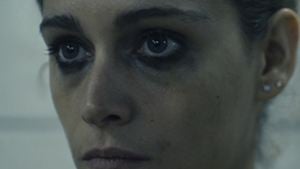
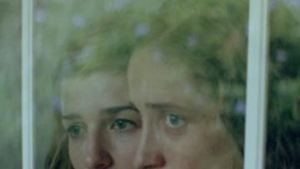


No comments:
Post a Comment